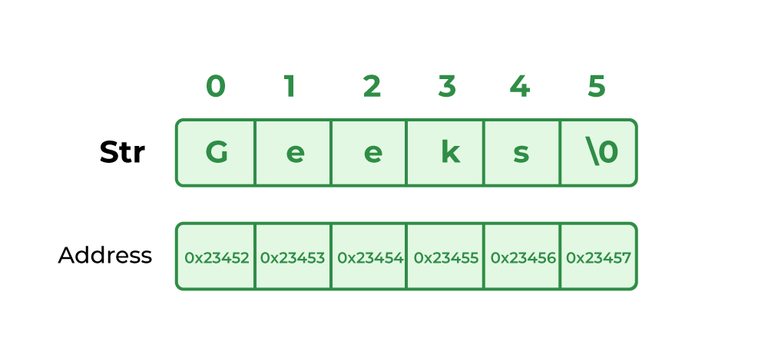Why Are Strings Immutable in Java? Recognizing the Core Concepts
Why Are Strings Immutable in Java? Recognizing the Core Concepts
Blog Article
What Is Unalterable Strings and How It Works
In the world of shows, comprehending the principle of immutable strings is vital for creating robust and safe and secure applications. Immutable strings refer to strings that can not be changed after they are created, ensuring information integrity and predictability within the code.
The Essentials of Immutable Strings
Unalterable strings, as a basic idea in programming, are personality sequences that can not be altered when they are created. This indicates that once a string is appointed a value, that value can not be modified. In languages like Python and Java, strings are unalterable things, leading to different implications in regards to memory monitoring and information integrity.
Among the key advantages of immutable strings is that they supply a complacency in data manipulation. Since the material of an unalterable string can not be modified, it makes sure that the initial information continues to be undamaged, lowering the risk of unintended modifications during program execution (Why are strings immutable in Java?). This residential or commercial property additionally streamlines debugging processes, as programmers can trust that as soon as a string is defined, its value will certainly not be inadvertently changed
When a brand-new string is created based on an existing one, instead than customizing the initial string, the brand-new worth is saved separately. Overall, comprehending the fundamentals of immutable strings is critical for mastering shows ideas and enhancing code effectiveness.
Benefits of Immutable Strings
Building upon the protection and efficiency advantages of unalterable strings, their advantages include improving code reliability and streamlining simultaneous shows jobs. By being immutable, strings can not be changed after development, which eliminates the danger of unintentional modifications in the data they keep. This inherent immutability makes certain that as soon as a string is produced, its value continues to be continuous throughout the program's execution, minimizing the possibilities of insects triggered by unforeseen alterations.
In addition, unalterable strings add to code dependability by making it less complicated to reason regarding the state of a program. Considering that strings can not be changed, designers can rely on that a string will certainly constantly hold the exact same worth, simplifying debugging and upkeep efforts. This predictability results in much more dependable and secure codebases.

Execution in Shows Languages
Within different programs languages, the incorporation of immutable strings is a basic aspect that influences how data is handled and adjusted within code structures. The implementation of immutable strings differs throughout different programs languages, with each language offering its very own devices continue reading this to sustain this concept.

In contrast, languages like C and C++ do not have built-in support for unalterable strings. Developers in these languages have to by hand execute immutability by enforcing guidelines within their code to avoid direct alterations to string objects.
Ideal Practices for Collaborating With Immutable Strings
When managing unalterable strings in programming languages like Java and Python, adhering to finest practices makes certain effective and safe data control. Among the essential best practices is to use StringBuilder or StringBuffer rather than directly adjusting strings, especially when taking care of comprehensive concatenation operations. These classes supply mutable alternatives for string adjustment, aiding to prevent unnecessary memory appropriations and boosting efficiency.
Another ideal technique is to utilize string interpolation or format operates provided by the language instead of manual concatenation. This not just enhances readability yet go additionally aids in stopping usual mistakes such as unintentional string adjustments. Additionally, when dealing with delicate data such as passwords or API tricks, it is important to stay clear of storing them as plain text in immutable strings. Making use of safe storage space mechanisms like char arrays or specialized libraries for handling delicate information aids minimize protection risks related to unalterable strings.
Real-world Applications and Examples
Discovering sensible executions of immutable strings in numerous industries reveals their substantial influence on information integrity and system integrity. In the healthcare sector, unalterable strings play a crucial function in making sure the safety and security and confidentiality of patient information. By preventing unapproved adjustments to delicate info such visite site as medical records and prescriptions, unalterable strings assist maintain conformity with strict personal privacy policies like HIPAA.
Financial organizations likewise profit from the immutable nature of strings to boost the protection of client data and transaction records. Immutable strings help prevent scams and unapproved modifications to monetary details, offering a durable defense versus cyber risks and making certain the trust and confidence of customers.

Verdict
Ideal practices for functioning with unalterable strings consist of preventing direct alterations and using techniques that return new string items. Real-world applications of unalterable strings consist of information encryption, caching, and string adjustment jobs.
Unalterable strings refer to strings that can not be modified after they are created, making certain information integrity and predictability within the code. When a brand-new string is produced based on an existing one, instead than changing the initial string, the brand-new worth is stored independently.In languages like Java and Python, strings are unalterable by default, meaning that once a string things is developed, its worth can not be transformed - Why are strings immutable in Java?. Finest practices for working with immutable strings include staying clear of straight alterations and making use of approaches that return brand-new string objects. Real-world applications of immutable strings include data encryption, caching, and string control tasks
Report this page